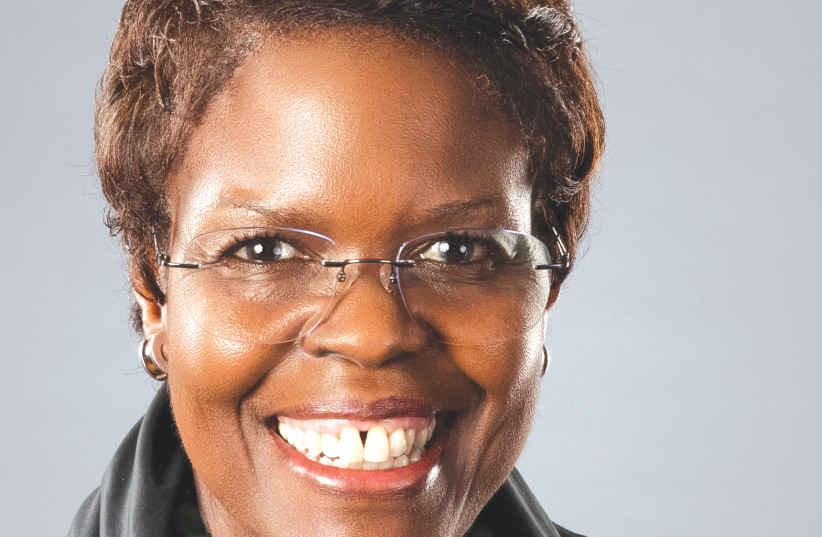During the summer of 1964, two white, Jewish, civil rights activists named Andrew Goodman and Michael Schwerner traveled from New York City to Mississippi to help organize efforts to advance Black voter registration. They joined a young Black civil rights worker by the name of James Chaney. On June 21, the three young men were brutally murdered by members of the Ku Klux Klan in a heinous crime that sparked national outrage and helped gain passage of the Civil Rights Act of 1964.
These young Americans were united in their pursuit of justice and their vision of a bright American society, where people of all faiths, colors and ethnicities can live together in peace and harmony. They embodied an interfaith coalition of all colors and creeds that our country has known for decades and that is more necessary than ever during these divided times.
Black and Jewish people in the US have a long history of kinship with one another, based on shared minority status, and experiences of discrimination and bigotry. That is why we are deeply troubled that the vast common bonds shared by the Black and Jewish communities have recently been challenged in some circles, particularly over disagreements about Israel.
These divisions run counter to our common values and struggles, both present and historical. Neither of our communities is monolithic, but we refuse to remain silent on this important issue.

In the early 20th Century, our two communities were subject to housing discrimination, unjust quotas, and barriers to higher education and social spheres, as a recent documentary series from OpenDor Media highlights. The iconic photo of Rev. Dr. Martin Luther King Jr. and Rabbi Abraham Joshua Heschel walking arm-in-arm during the 1965 march from Selma to Montgomery is a symbol of the special bond shared between Blacks and Jews. “I remember marching from Selma to Montgomery; how he stood at my side and with us as we faced that crisis situation,” Dr. King shared of his friend Rabbi Heschel.
Our common struggles and quests for equality have led our communities to look towards one another for solidarity and to partner together on common interests. A number of prominent Jewish activists were closely engaged with civil rights efforts, notably attorney Stanley Levison, who aided Dr. King and advised him on key issues relating to the Movement. Many lawsuits that Black institutions brought to court were argued by Jewish lawyers.
Jews have often relied on or appreciated the support of the Black community on central issues. During World War II, many publications of the Black press publicly denounced the antisemitic Nazi regime. Many Black leaders have been vocal about their support of the Jewish state. W.E.B. DuBois wrote in 1919, “The African movement means to us what the Zionist movement must mean to the Jews,” and Dr. King once wrote, “The whole world must see that Israel must exist and has the right to exist, and is one of the great outposts of democracy in the world.”
Our histories are interconnected in more ways than one. There are Jews of all races and heritages across the globe, and nearly 10% of American Jews are people of color. Though there are far reaching social divides today in North America, our two minority communities play a significant role in America realizing her commitment and promise.
Despite these strong historic bonds, our communal kinship has known moments of strain. The mistrust following the 1991 race riots in Crown Heights took years of communal work to repair. The Movement for Black Lives’ 2021 platform demonizing Israel spurred a backlash by many Jewish groups that were vociferous supporters of the movement’s central goals.
But our shared struggle and history of solidarity are far greater than the forces that divide us. Our communities are still dealing with currents of hatred and bigotry from baseless extremists, who seek to undermine our identity and heritage. There is no distinction between hatred and hatred, whether it is the source of a cold-blooded massacre at a Charleston church or a terror-driven hostage crisis at a Colleyville synagogue.
The Black and Jewish communities have marched hand-in-hand in times of oppression and resilience. We will continue to go forward and join hands to shape a just, accepting and welcoming society for all humanity.
Having just marked Black History Month, it is incumbent that we remind ourselves of our shared values and that we commit to standing together against extremism, antisemitism and racial inequality.
Eric Fingerhut is president and CEO of Jewish Federations of North America, which represents over 300 Jewish communities across North America.
Margaret Mitchell is CEO of YWCA USA, an NGO dedicated to eliminating racism, empowering women, and promoting peace, justice and freedom.
